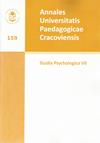Do illusionary positive memories cast a shadow on current happiness?... Evaluations of the present and the past in relation to subjective well-being
Do illusionary positive memories cast a shadow on current happiness?... Evaluations of the present and the past in relation to subjective well-being
Author(s): Ognen Spasovski, Nikolina Kenig, Young-Hoon KimSubject(s): Psychology
Published by: Wydawnictwo Uniwersytetu Komisji Edukacji Narodowej w Krakowie
Keywords: evaluation of the past; present and past selves; evaluation of the societal conditions; life satisfaction; subjective well-being
Summary/Abstract: Studies on Subjective Well-being (SWB) show that the the Republic of Macedonia and other ex-communist developing countries are at the bottom of lists measuring this variable. One possible determinant is how the evaluation of present living conditions compared to socialism era 20 years ago, is related to the way people evaluate their current SWB. We hypothesize that the higher the difference in evaluation of the past compared to the evaluation of the present, the lower the subjective well-being will be. Participants were 443 adults, all 50 to 65 years of age. SWB was measured using Satisfaction with Life Scale and PANAS. Appropriate questionnaires were developed to measure evaluation of the present and past self, as well as present and past societal conditions, focusing on perceived opportunities, uncertainty and hopelessness. The results support our assumptions that the higher the difference between the evaluations of past and present self, the lower the SWB is. This difference is included in a regression analysis as a significant predictor of SWB, but present self and past social conditions are the strongest factors. The model explains 37.5% of the variance. It could be interpreted that this specific “shadow” of the past thwarts people to see and benefit from present opportunities. This additionally worsens their present living conditions and present SWB.
Journal: Annales Universitatis Paedagogicae Cracoviensis. Studia Psychologica
- Issue Year: VII/2014
- Issue No: 1
- Page Range: 69-81
- Page Count: 13

